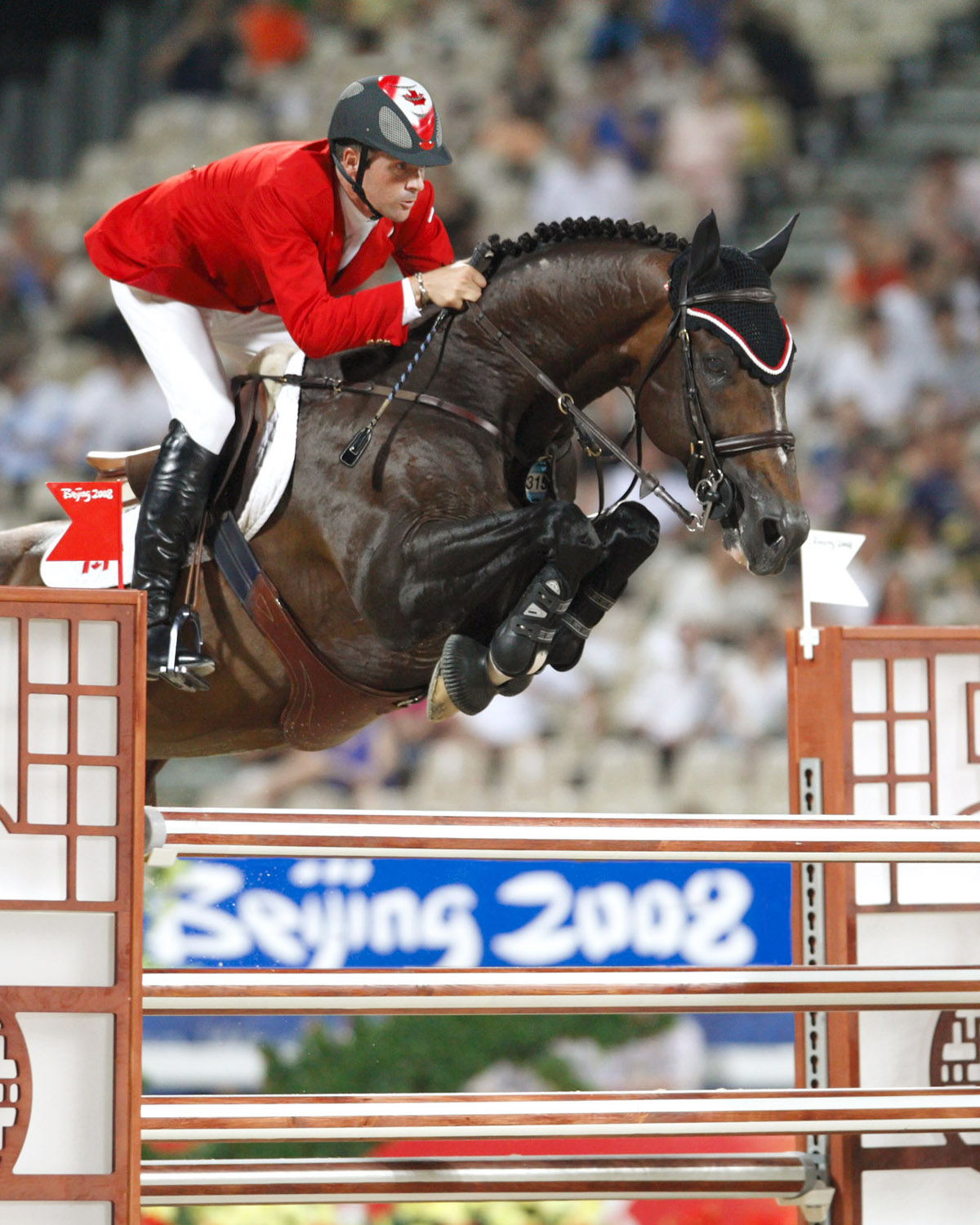I’ve always held a fairly dim view of the Hollywood film plot formula that ensures popcorn- and Coke-addled audiences go home with smiles on their faces. Happy endings are for the reality-challenged, I’ve always contended. But I’ve made exceptions for books and movies whose main characters were animals. They should always have happy endings in my opinion, even though – as the facts of this past Sunday prove – animals are not spared in the real world any more than people are. So what’s my beef with fate, or luck or whatever are the uncontrolled circumstances that dictate how and when we all, humans or horses, reach the inevitable ends of our lives? We are all subject to the same forces of nature, right?
There are two reasons the horse world is weeping over the death of Hickstead, a death so tragic it is almost impossible to comprehend. The first is that as animal lovers – and horse lovers to boot – we look at the incredible character that was Hickstead and it breaks our hearts to learn that such a magnificent life ended in the time it takes to blow out a match. No one who ever saw Hickstead jump could doubt that he was doing what he was meant to do, both physically and temperamentally. He always entered the ring looking like a cross between James Dean (but a rebel WITH a cause) and Diego Maradona. There aren’t many equine athletes to whom the term ‘aggressive’ would apply in a positive sense. But Hickstead always meant business and it showed in the way he attacked a course. In the stable and without any jumps to look at, he was a gentle, quiet and surprisingly small horse. He saved all that explosive power for when it really counted.
The pain we feel for Hickstead the horse is a selfish pain. It’s our loss in a way that it isn’t his. We can anthropomorphise a horse all we want (and I’m guilty of it already in this post) but the truth is that our beloved animals have little sense of the future beyond the next treat, no expectation that the sun will rise tomorrow. Hickstead was simply alive and doing what he did best until the very last moment of his life.
Our other, and perhaps greater, sense of loss is in the fact that Hickstead didn’t exist in isolation, but as a partner to Eric. Eric’s loss and the loss of a magical partnership that could melt the heart of the most jaded Olympic commentator is the other reason so many of us are walking around on the edge of tears if we let ourselves think too long on it. Eric’s and Hickstead’s story has the characteristics of a fairy tale. The world overflows with stories of girls and horses, but this one is about a boy and his horse. Eric finds this tough, opinionated little stallion and within two years is making his way toward the centre of the world stage. The victories begin to pile up, and every athlete’s idea of the ultimate achievement – Olympic gold – is gained. Eric becomes a hero for Canada and for show jumping around the globe, but his image is inseparable from that of the little stallion who fits his own slight build so perfectly. The perfection of their fit was never more obvious than when Philippe Le Jeune rode Hickstead in the individual final at WEG. He looked pony-like under Le Jeune’s considerable height.
In six years of watching Eric and Hickstead, I never once saw an awkward or inharmonious moment. Like a reflected image in a species-transcending mirror, Eric matched Hickstead’s focus, his determination. Watching them over the biggest courses – like the CN at Spruce, the Olympics or WEG – was as close to believing horses might fly as one could come. What a feeling Eric must have had every time Hickstead lifted him into the air. It wasn’t only their objective successes that made Eric and Hickstead so easy to admire; it was the magic that they had together. A fairy tale.
Fairy tales have happy endings. This isn’t the way the story of Hickstead was supposed to end. I’m going to be sad about this for a long time. I am sure I’m not alone. I only hope Eric also knows he is not alone, that his own grief is reflected in the shared sorrow of more people than he could ever count.
Hickstead (1996-2011)
(Cealy Tetley photo)

